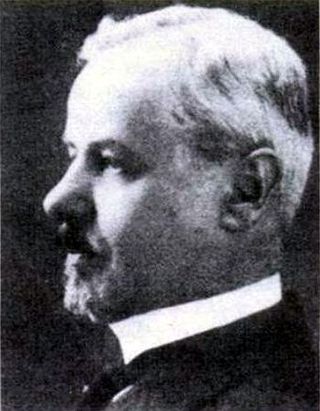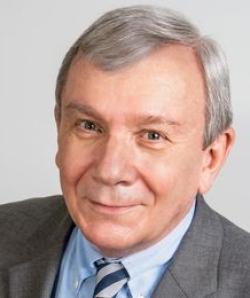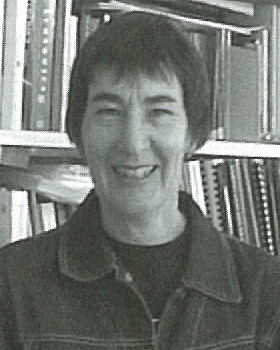Related Research Articles

Accounting, also known as accountancy, is the process of recording and processing information about economic entities, such as businesses and corporations. Accounting measures the results of an organization's economic activities and conveys this information to a variety of stakeholders, including investors, creditors, management, and regulators. Practitioners of accounting are known as accountants. The terms "accounting" and "financial reporting" are often used interchangeably.

Alexander Hamilton Church was an English efficiency engineer, accountant and writer on accountancy and management, known for his seminal work of management and cost accounting.
The following outline is provided as an overview of and topical guide to accounting:

Emile Oscar Garcke was a naturalised British electrical engineer, industrial, commercial and political entrepreneur managing director of the British Electric Traction Company (BET), and early author on accounting. who is noted for writing the earliest standard text on cost accounting in 1887.

The history of accounting or accountancy can be traced to ancient civilizations.
Michael Chatfield (1930s-2004) was an American economist, accounting historian, and Emeritus Professor of Accounting at the Southern Oregon University, known for his work on the history of accounting and accounting thought, and particularly for his History of Accounting: An International Encyclopedia, edited with Richard Vangermeersch.
Ernest Anthony (Tony) Lowe was a British economist, and Professor of Accounting and Financial Management at the University of Sheffield, known for his work on management control, and management control systems.
John Manger Fells was a British incorporated accountant consultant, and author on accounting. He was known as promoter of cost accounting and leading cost accountant in Britain early 20th century.
George Pepler Norton was a British accountant, known for the publication of his 1889 Textile Manufacturers' Bookkeeping, which contributed to the establishment of modern cost accounting.
David Solomons was a British/American accounting scholar, known from his work on accounting and business management, its concepts, standards, history and politicization.
Murray Charles Wells is a New Zealand economist, top manager, and Emeritus Professor of Accounting at the University of Sydney, known for his work on the history of accountancy.
Richard Victor Alvarus Mattessich was an Austrian-Canadian business economist and Emeritus Professor of Accounting at the University of British Columbia, known for introducing the concept of electronic spreadsheets into the field of business accounting in 1961, as well as pioneering analytical and philosophical methods in accounting.
Richard K. Fleischman was an American accounting scholar and Emeritus Professor of Accounting at the John Carroll University, known for his work on accounting history.

Gary John Previts an American accountant, is a Distinguished University Professor Emeritus at Case Western Reserve University. From 1979 to June 30, 2023 he was Professor of Accountancy in the Weatherhead School of Management teaching undergraduate, masters, and doctoral courses. He is known for his work on the history of the theory and practice of accountancy.
Joni J Young is an American accounting academic.

Prem Nath Sikka, Baron Sikka is a British-Indian accountant and academic. He holds the position of Professor of Accounting at the University of Sheffield, and is Emeritus Professor of Accounting at the University of Essex.

Jillian Jeanette Hooks is a New Zealand accountancy academic. She was a professor at the Massey University and published a number of books and papers on accounting and financial reporting.

Marcia Annisette is a Trinidadian-Canadian accounting academic, and currently the Vice Provost Academic at York University in Toronto. She is co-editor-in-chief of Accounting, Organizations and Society. She has previously helld positions as the Associate Dean Students and the Associate Dean Academic at the Schulich School of Business. She is a former co-editor-in-chief of Critical Perspectives on Accounting. Her research looks at the social organization of the accounting profession, addressing issues of race, class, and nationality.
Public interest accounting is a branch of academic accounting research that attempts to understand how accounting practices and the activities of the accounting profession impact the public interest. Public interest-focused accounting research sheds light on the role of accounting in perpetuating unequal social relations, while attempting to rectify such issues via scholarship and the dissemination of research results. It is heavily influenced by the ideas of social theorists, including but not limited to Marx, Gramsci, Foucault, Bourdieu, and Said.

George Insole was an English entrepreneur who built an extensive coal mining and shipping business in South Wales.
References
- ↑ Hoskin, Keith W., and Richard H. Macve. "Knowing more as knowing less? Alternative histories of cost and management accounting in the US and the UK Archived 10 November 2014 at the Wayback Machine ." The Accounting Historians Journal (2000): 91-149.
- ↑ Carnegie, Garry D., and Christopher J. Napier. "Critical and interpretive histories: insights into accounting’s present and future through its past." Accounting, Auditing & Accountability Journal 9.3 (1996): 7-39.
- 1 2 Professor Trevor Boyns, Professor of Accounting & Business History at business.cardiff.ac.uk. Accessed 11.2014.
- ↑ Geoffrey Jones, Jonathan Zeitlin (2008). The Oxford Handbook of Business History. p. xii.